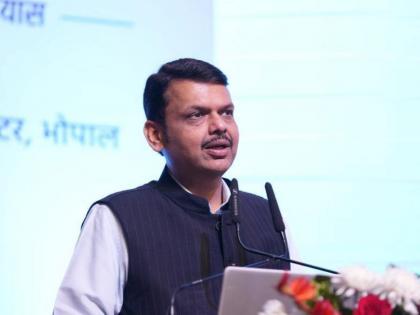CM Devendra Fadnavis Defends New Security Bill, Says Law Targets Urban Naxals, Not Protesters
By Lokmat English Desk | Updated: August 3, 2025 20:31 IST2025-08-03T20:29:03+5:302025-08-03T20:31:07+5:30
Maharashtra Chief Minister Devendra Fadnavis has stated that the newly passed Maharashtra Special Public Security Bill, 2024, is not ...

CM Devendra Fadnavis Defends New Security Bill, Says Law Targets Urban Naxals, Not Protesters
Maharashtra Chief Minister Devendra Fadnavis has stated that the newly passed Maharashtra Special Public Security Bill, 2024, is not intended to silence dissent or suppress protests. Instead, the legislation is designed to counter individuals and groups engaged in urban Naxalite activities. Responding to Maharashtra Navnirman Sena (MNS) chief Raj Thackeray's remarks, Fadnavis emphasized on Saturday that peaceful protesters and critics of the government have nothing to fear. “The law doesn’t target protestors, but those acting like urban Naxals will be dealt with,” he said. The bill, passed in the recent monsoon session, includes strict penalties such as up to seven years' imprisonment and heavy fines.
Critics Raise Concerns Over Potential Misuse of the Law
Despite the government’s assertions, the legislation has drawn strong opposition from political parties and civil society organisations. Critics claim the bill could be misused to label dissenters as extremists under the garb of national security, thereby stifling democratic freedoms. Fadnavis also addressed Raj Thackeray’s criticism about the prioritisation of Hindi over Marathi, clarifying that Marathi remains compulsory in Maharashtra, but it is also important to promote Indian languages over English. “I do not support giving preference to English over Indian languages. Along with Marathi, students should learn an additional Indian language,” he said, pushing back against accusations of cultural imposition.
Also Read: Solapur Tragedy: Two Men Electrocuted While Removing Advertising Board in MIDC
Bill Refocused on Left-Wing Extremism After Public Feedback
As per IANS, Revenue Minister Chandrashekhar Bawankule, who chairs the Joint Select Committee, submitted a report to the assembly last month outlining the revised scope of the bill. Initially criticised for its vague use of the term "urban naxalism," the bill has been amended to specifically focus on curbing the unlawful activities of Left Wing Extremist (LWE) groups and similar outfits. Bawankule explained that five committee meetings were held, and the public was invited to submit feedback. As a result, over 12,500 objections and suggestions were received, which led to several changes in the language and provisions of the bill.
Advisory Board Structure Strengthened; Investigation Protocols Revised
Significant amendments were made to the composition of the advisory board that determines whether an organisation is unlawful. Under the revised provisions, the board must now include a sitting or retired High Court judge as chairperson, along with a retired district judge and a High Court public prosecutor. Earlier versions allowed for a single judge or an equivalent legal authority. Another key revision ensures that only officers of the rank of Deputy Superintendent of Police or higher can investigate offences under this law, replacing the initial proposal that allowed sub-inspectors. These changes align the bill with national laws like UAPA and the Prevention of Atrocities Act.
Open in app